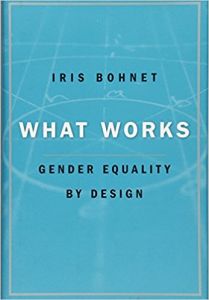
Recommendation
Harvard professor Iris Bohnet seeks to determine “what works” when it comes to increasing gender equality. In that pursuit, she offers a focused, meticulous review of efforts to change human behavior to foster inclusion and ethical practice. Bohnet analyzes surveys, lab studies, corporate actions, meta studies and the law from a broad array of disciplines: politics, business, social science, gender studies, and more. The result can be overwhelming, but her prose is always engaging and useful. The author is exceptionally honest. She flatly states how ineffective certain well-intended programs have been. This clarifies her ethical commitment and makes her conclusions more persuasive. getAbstract recommends Bohnet’s insight to anyone interested in clear thinking, social science and a more inclusive society.
Summary
About the Author
A native of Switzerland, Iris Bohnet, PhD, is a behavioral economist at Harvard University. She is a professor, the director of the Women and Public Policy Program, and co-chair of the Behavioral Insights Group at the Kennedy School of Government.
By the same author
Learners who read this summary also read
Related Skills




















Comment on this summary